The Colonnade: Kiev – November 2015
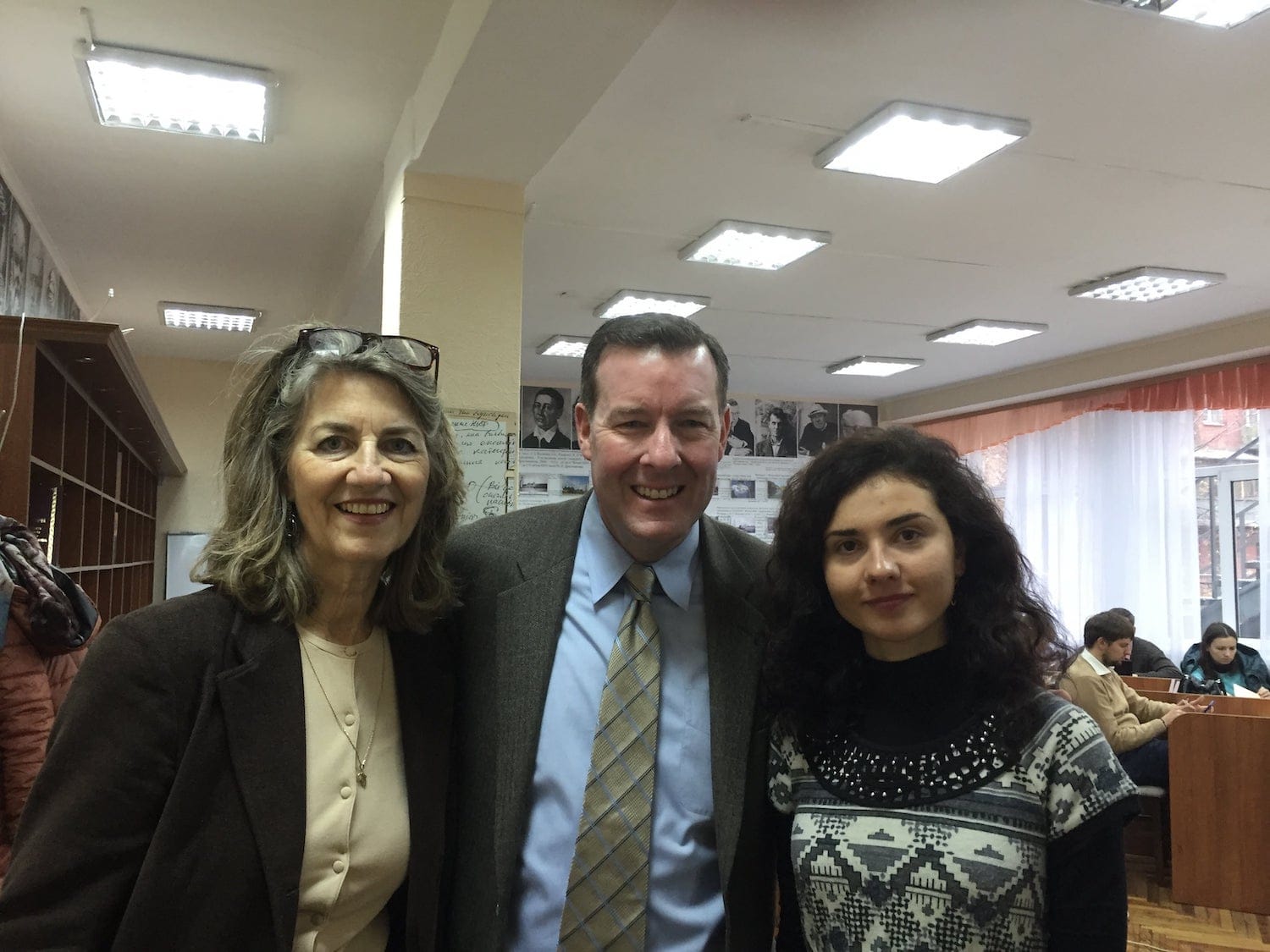
In Kiev for our dispute resolution/reconciliation program at National University with dear friend, Pat Miersma trauma and moral injury expert and Elena, our translator. We went to lunch with other students as Elena translated their questions of faith, organized religion, war and reconciliation real questions for a country at war. Finally, Elena, who had given no prior notice re her beliefs, interrupted the questions and said to us: “You are saying the exact same things as my pastor. I cannot believe it. This is the Holy Spirit at work.”
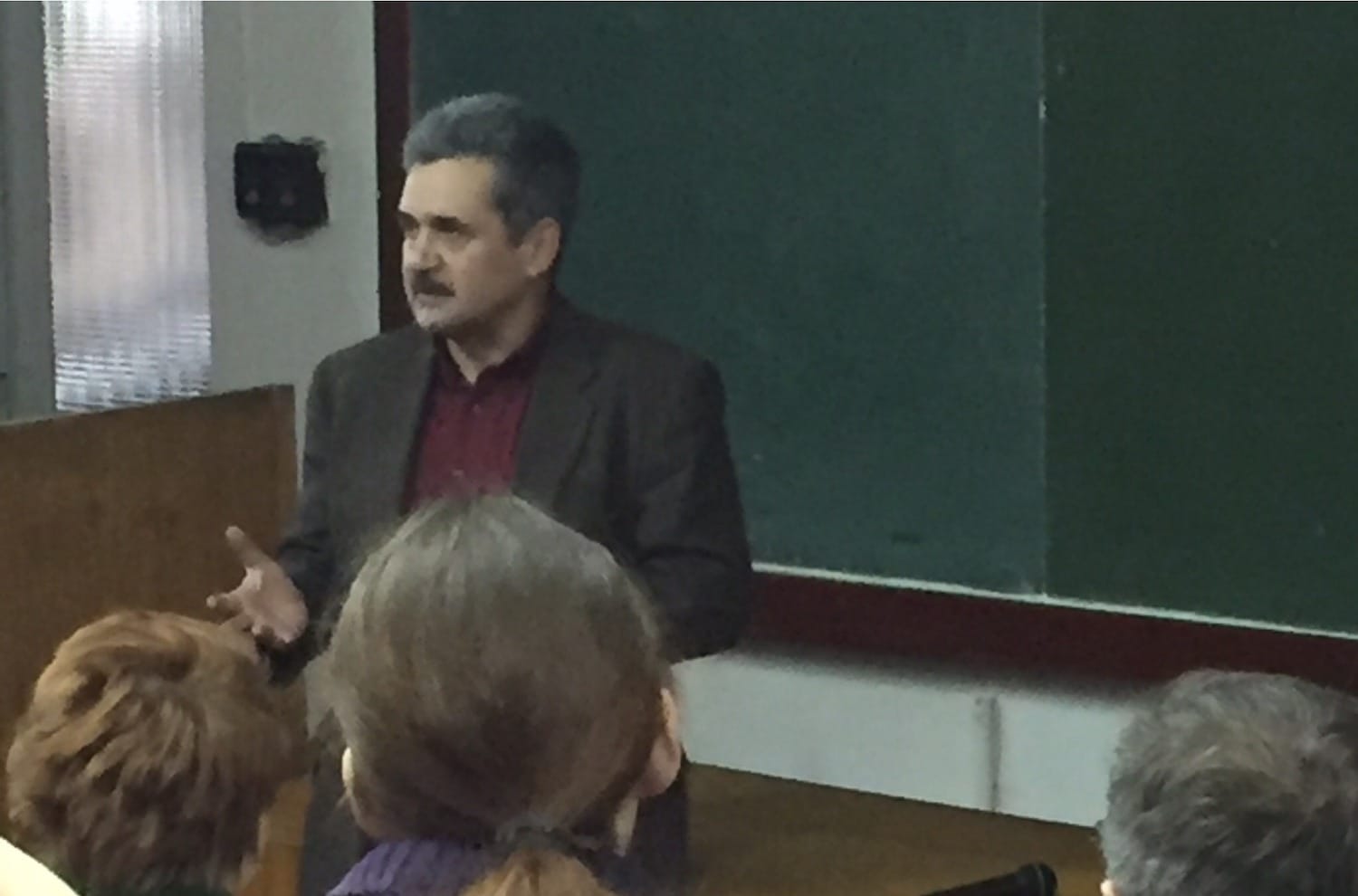
Our Ukrainian partner, Dr. Sergiy Tymchenko, introduces a new M.A. in Religious Studies with emphasis on counseling and psycho-therapy at National University, in partnership with Realis (the Kiev think-tank that Sergei founded and leads). “Realis” is Latin for reality. The name was chosen because just as God is real on Sunday, He is also real the rest of the week. “Monday through Saturday is sacred too.” I first met Sergei in Istanbul in a dialogue that we organized for Ukrainian and Russian pastors. We soon discovered a common passion for discipleship, and for equipping people of faith especially those from our own faith to be practically relevant to the needs of society. This M.A. Is truly practical, and thus truly visionary.
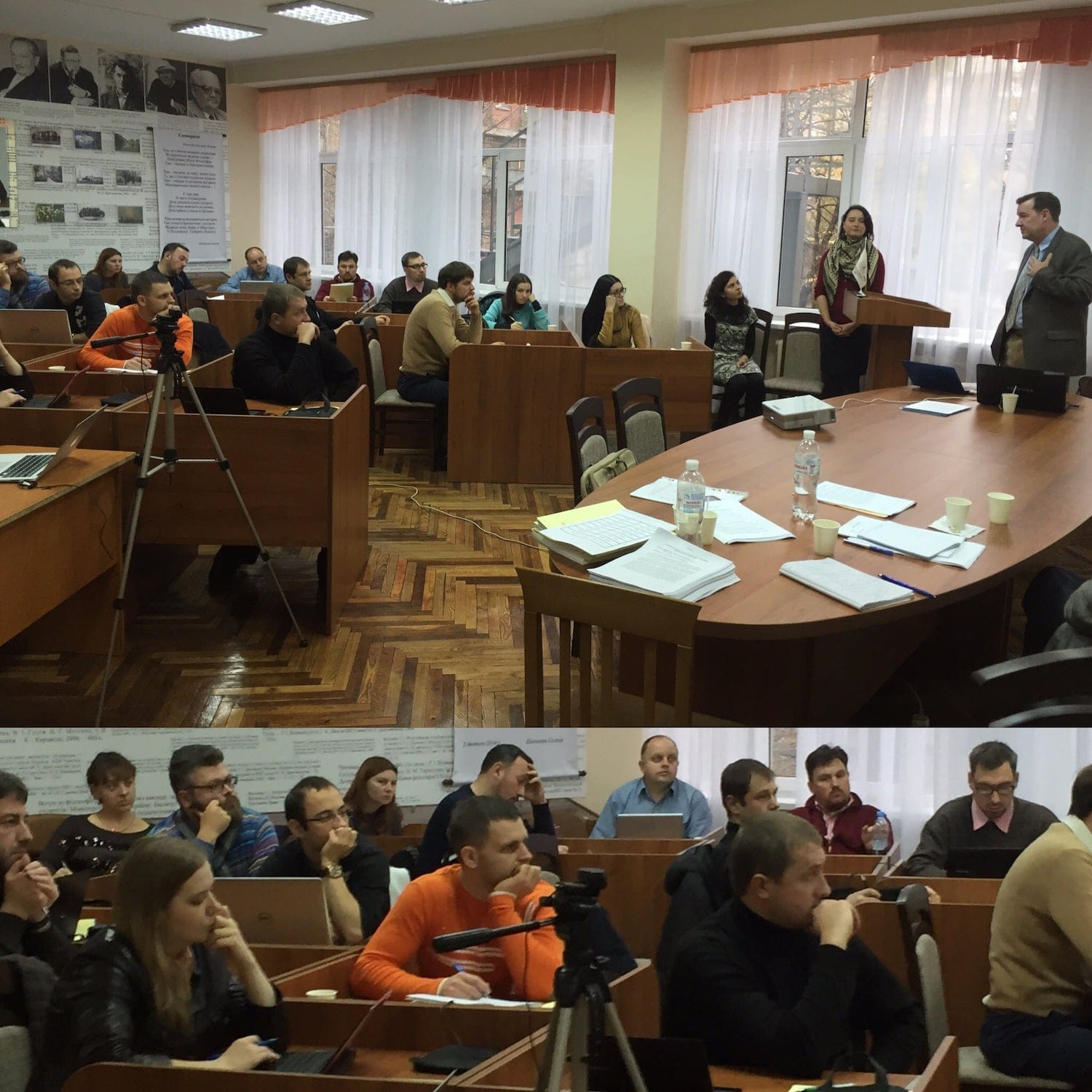
A privilege to give the inaugural lecture in the new, two-year, M.A. in religious studies, focused on counseling and psycho-therapy (a partnership of National University and Realis, a Kiev-based think-tank). Most of this cohort are volunteer chaplains in the Ukrainian Army, with many having spent time in the conflict zones. It is a different classroom experience to engage with those who want to be there, and have lived it. An absolute honor. I spoke of some lessons I've learned in engaging U.S. Military chaplains as they considered their potential role beyond religious support for the troops, to include providing religious analysis to the commander. (For those who want to know more, here is my 2009 article: “Ready or Not: Equipping the U.S. Military Chaplain for Inter-Religious Liaison:” )
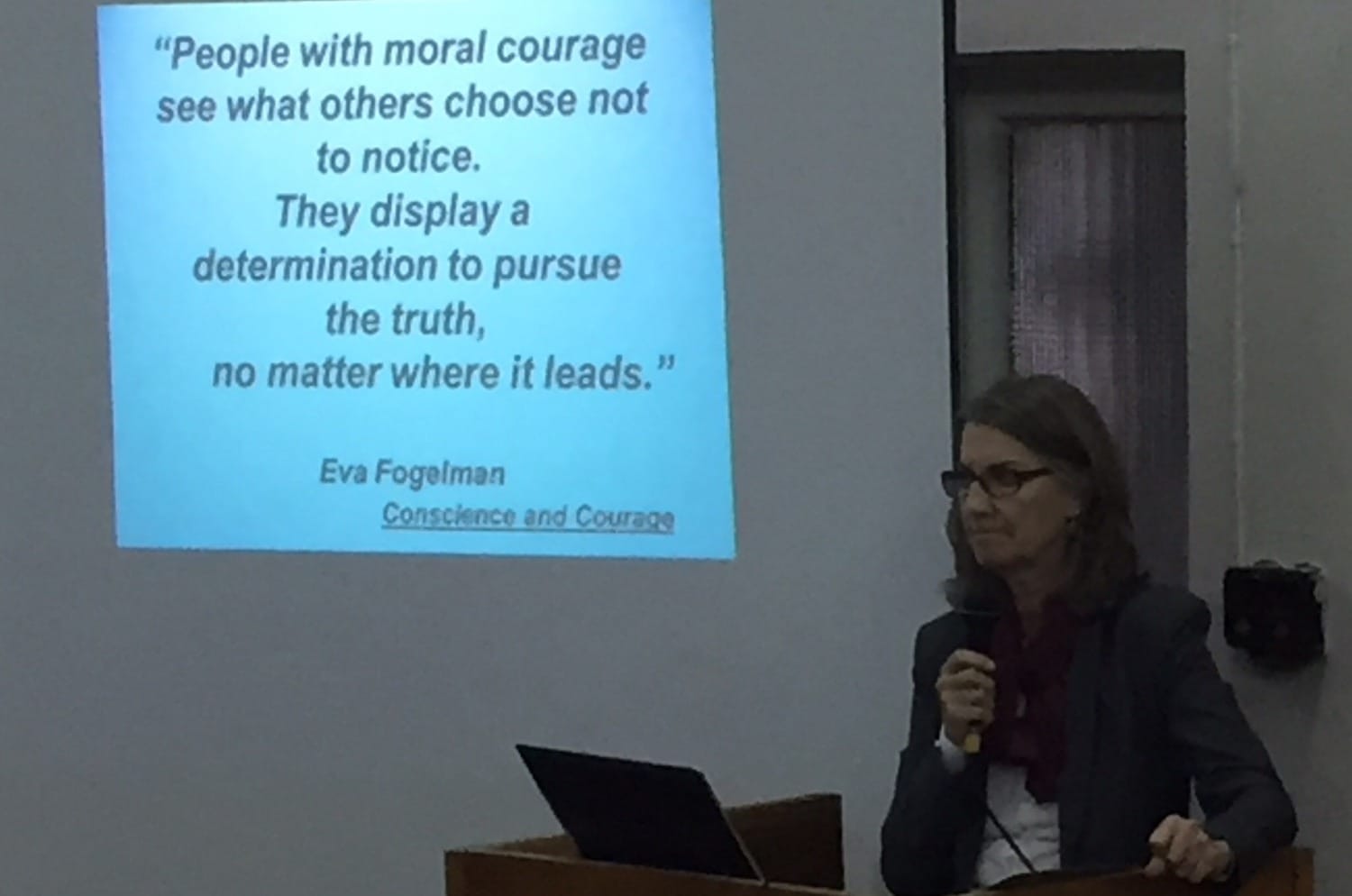
I learn so much from this amazing leader, Pat Miersma. Pat speaks to the new cohort of the first-ever M.A. In Religious Affairs (focused on counseling and psycho-therapy) at Kiev's National University. Speaking of trauma as a global problem that she first experienced during her 14 months in Vietnam (1970-71) as a nurse with a MASH unit (field hospital), Pat walks themes through how she learned the pedagogy of teaching trauma healing. The result is a book she co-authored: “Healing the Wounds of Trauma,” now used in 50 countries and translated into 170 languages.
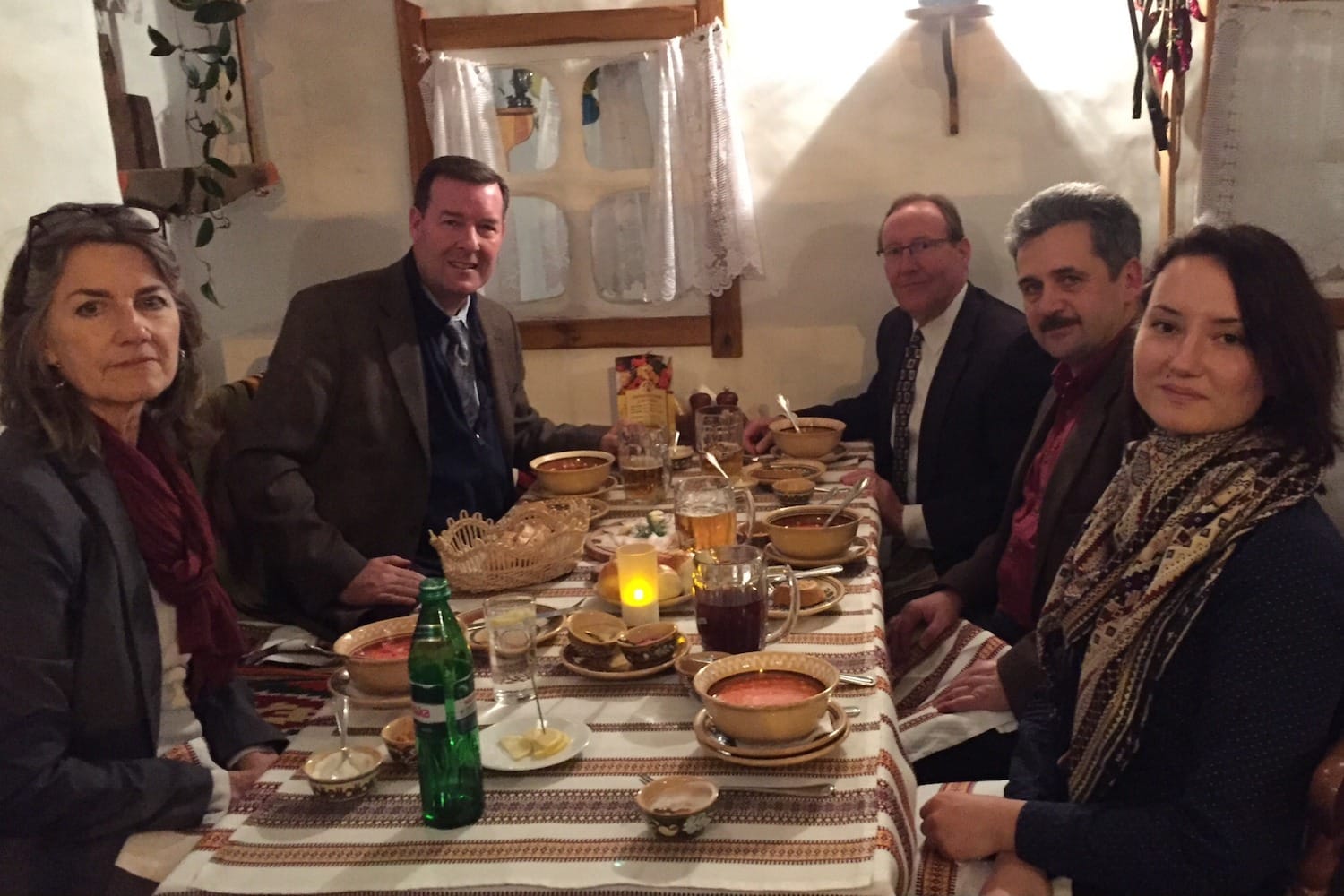
I feel like I'm living in a World War II movie. Tatiana (right) is a PhD student writing her dissertation on religious peace-building. She was a war correspondent, traveling to the front line in Crimea to cover the role of chaplains. She met her husband and they got married. He came home from the front three times in the next 18 months for a couple days each time. Now he is back home permanently after his second Purple Heart.
Our delegation Pepperdine's Tim Pownall & SIL's Pat Miersma with our host Realis' Sergiy Tymchenko. During the Communist pagan comeback attempt, Sergiy went to elementary school in the building behind him, just next to Tithe Church, where he studied atheism. Now he is a pastor trying to live the reality of God, every day.

We spent four hours today at St. Michael's seminary, speaking with volunteer chaplains Christian and Muslim in Ukraine's Army, along with the Ministry of Defense's Colonel Ruslan, who is responsible for chaplain affairs. A fascinating discussion of religion, security and citizenship where the chaplain has the potential to play the bridge between hard and soft power, between state and society. No matter their faith or denominational background, they are of one mind: faith communities have much to offer society and the state, especially in a time of war defined by trauma and moral injury. We spent much time listening to what the chaplains listen to, as a result of this war: PTSD; domestic abuse; vets that can't return home because they feel more comfortable at the front; guilt for surviving, leaving their friends at the front, for not stopping the enemy, and not being able to provide for their families; increases in alcoholism and suicides…Pat spoke at length re the kinds of things that can be done, emphasizing the spiritual dimension necessary for true healing, especially in the repair of the soul. She also spoke of how a theology of suffering should be developed/understood if there is to be treatment for moral injury (of violating your deepest beliefs through actions not otherwise possible except in war). There was consensus that if the pattern of treating trauma/moral injury was not started now, a tsunami would ripple through their society for generations, touching every sector of life.

An opportunity to share with the Spring of Hope Church today about the Living Water shared at Jacob's Well in John 4, especially the dignity and healing offered to the Samaritan Woman, as well as Pat's own story of trauma healing from 14 months at a MASH hospital in Chu Lai…It seems like an ordinary Baptist Church with a children's sermon and some visiting presenters…until you receive the report of church members traveling to the conflict zones by night to bring humanitarian aid to civilians and military alike…

Some metrics for a delegation well-received: 1) a line of people waiting to have their picture taken with you; and, 2) a Russian Orthodox Priest saying that the presentation was as vital as air for us. Something is going on here…I presented on “Faith & International Affairs: An American perspective,” which considered the lessons America has been learning since 9/11, and how IGE has tried to apply some of those lessons through its theory of change; e.g., its blended strategy security, relief, development, trauma, gender, trust, reconciliation, safe haven to rescue, restore and return Christians and other ethnic and religious groups to their ISIS-fled homes…Tim presented on developing a personal negotiation instrument, discussing BATNA (for you wonks out there), bottom line and managing expectations…practical stuff for individuals and institutions amidst a fluid and complex situation.
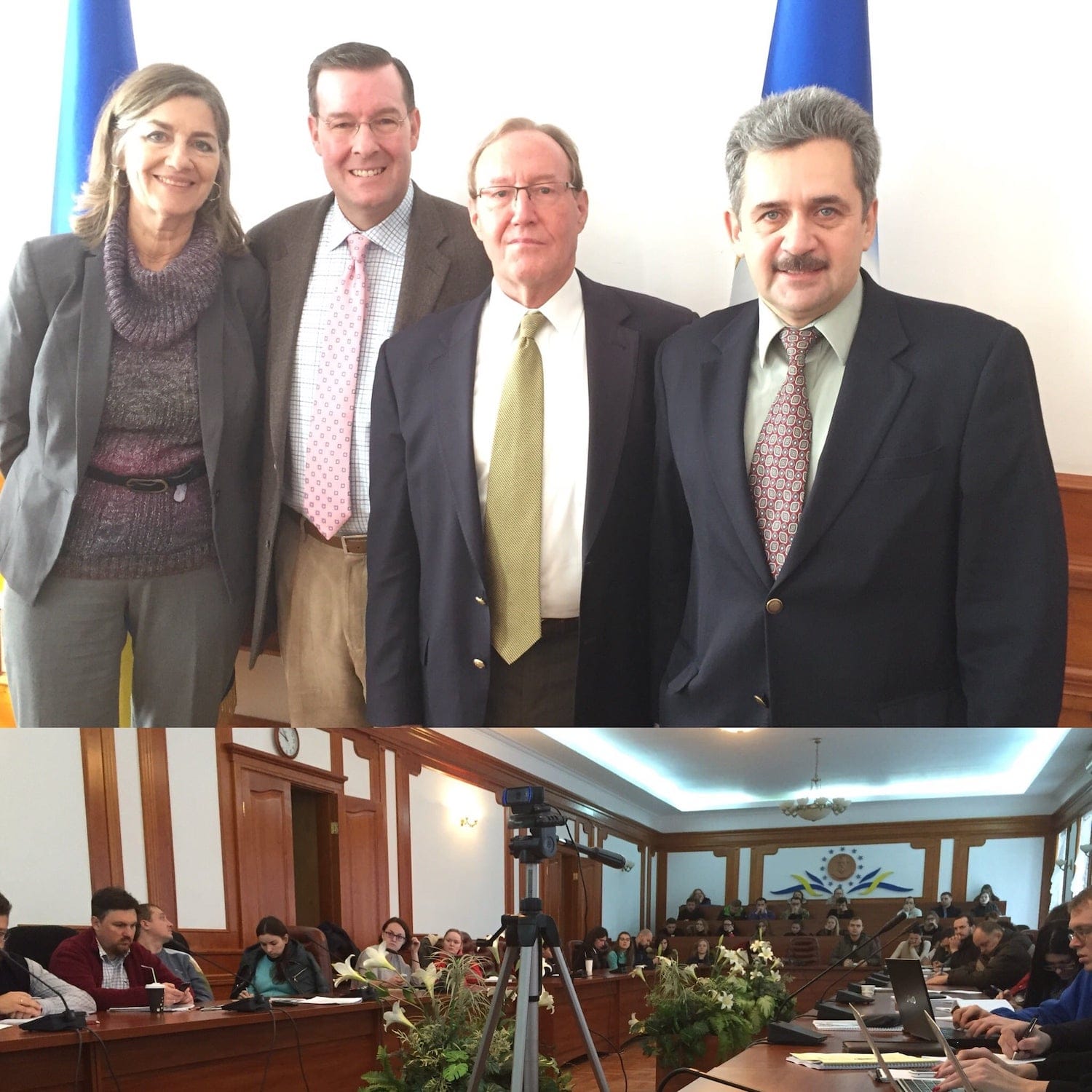
Two great meetings with Viktor Yelenskyi, Director of the Institute for Religious Studies at National University, and a member of the Ukrainian Parliament (where he is a recognized expert on religious liberty, discrimination, and chaplaincy issues, among others). His vision and thoughtfulness give us more hope for this great country. As does the additional 2.5 hours Pat, Sergei and I spent with the chaplains between meetings with Viktor…
